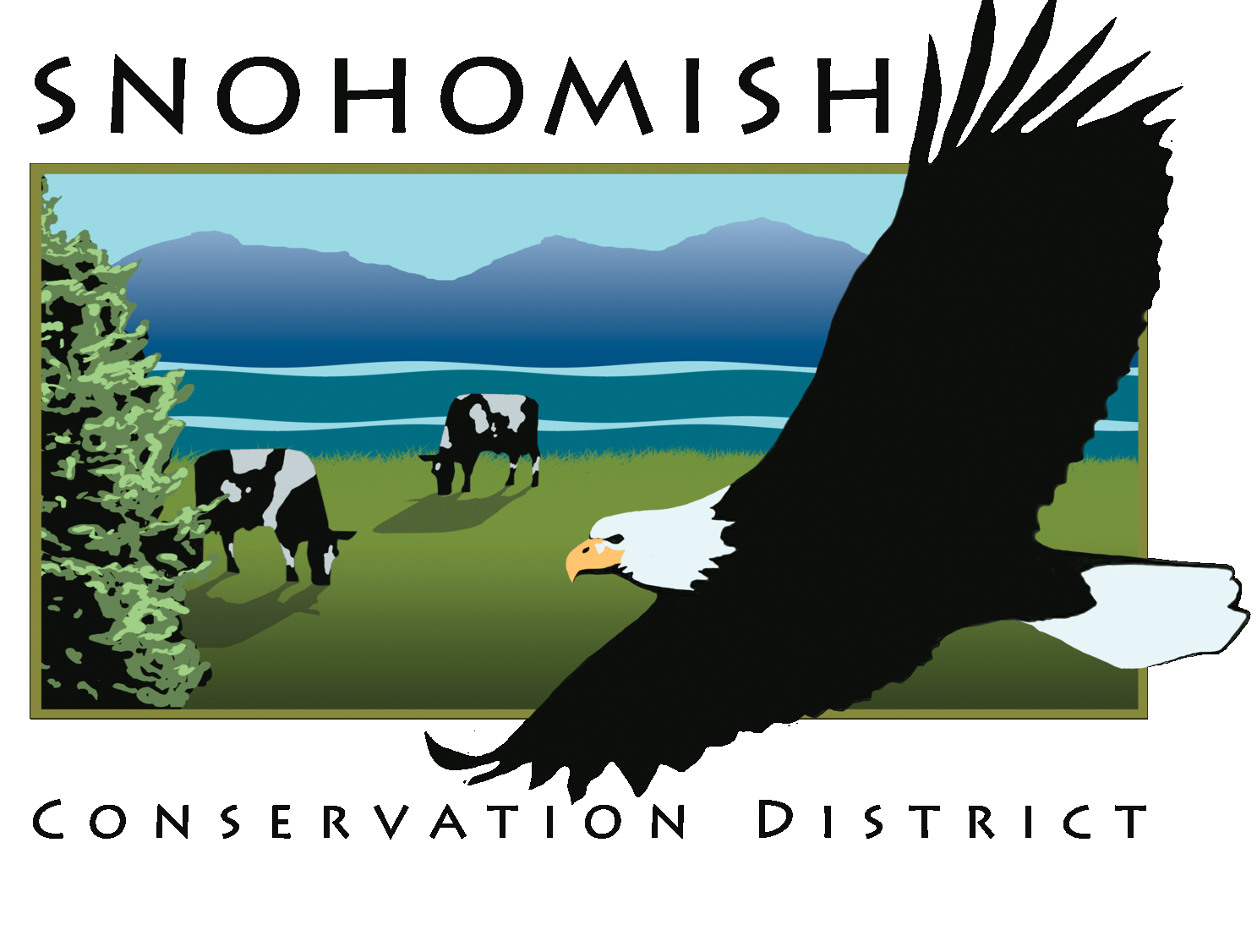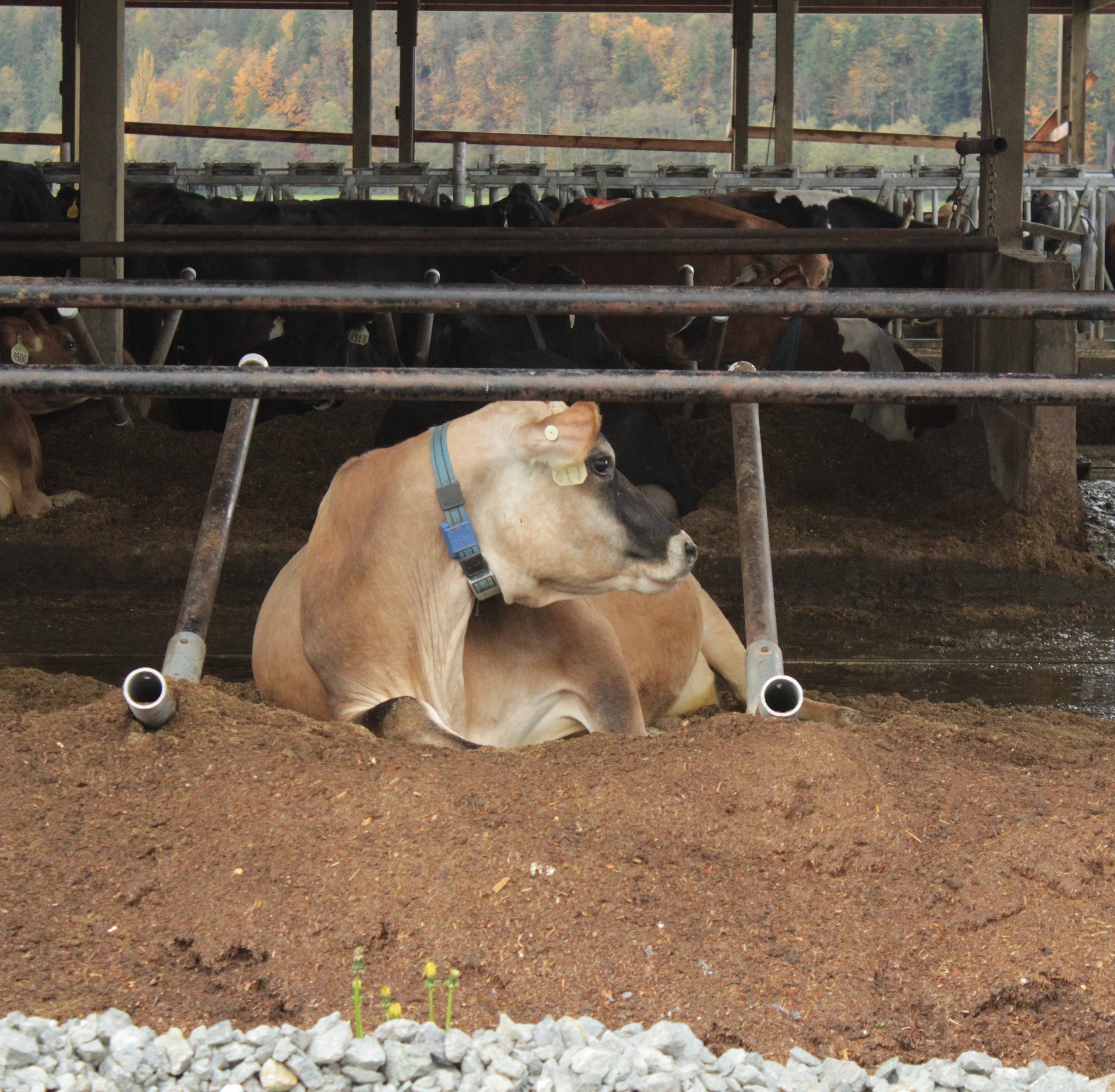DAIRY INNOVATION
Conservation Innovation Grants (CIG) are provided by funding through Natural Resources Conservation Service (NRCS). Learn more on their website.
“The Conservation Innovation Grant program is an example of government at its best, providing seed money to help spur cutting-edge projects. This year’s competition resulted in an impressive array of proposals that will ultimately benefit the people who grow our food and fiber.” - NRCS Acting Chief Leonard Jordan
For more program information, and to learn about how you can apply for a Conservation Innovation Grant (CIG), please contact the Agriculture Team at 425-760-1935 or farmplanners@snohomishcd.org.
Our Local CIG Project: Demonstration of Advanced Distillation Treatment Technology for Dairy Wastewater
Project Location: Natural Milk Dairy, Stanwood
Project abstract: Fecal coliform bacteria and other pathogens combined with the impacts of nutrient run-off from dairy wastewater are important environmental concerns confronting animal feeding operations in the U.S., including in the waterways of the Pacific Northwest. These risks, in addition to the costs and liabilities associated with storing and applying large volumes of manure wastewater, create financial stresses on dairy operations. Anaerobic digestion may offer some reduction in pathogens but little change in nutrient loading or application costs.
Janicki bioenergy Partners: Stillaguamish Tribe of Indians, Washington State Dairy Products Commission, and WSU Energy Program
This project is designed to demonstrate the usability, affordability, durability, and profitability of an innovative Advanced Distillation and Nutrient Separation (ADNS) system at a full-scale dairy farm. The proposed system is based on proven technology developed by Janicki Bioenergy (Sedro-Woolley, WA), which grew out of an internationally-known engineering and manufacturing company. Their Omni Processor, supported by the Bill and Melinda Gates Foundation, treats human fecal waste sludge and biosolids in developing countries. Janicki is adapting this technology for dairies to solve these key environmental and economic issues. As a result, dairy operations could move from simply managing manure resources on available land to actually treating wastewater to produce clean reusable water for their operation. The processor will also produce pathogen-free liquid and solid fertilizer-like products that can be used more effectively or exported from the dairy.
Washington State University will monitor and evaluate the processor’s operation as an independent third-party. WSU will collect and analyze samples of the inputs and outputs of the processor to establish their chemical and biological characteristics. With data from the demonstration, it can be reported what the balance of materials, nutrients, water, energy, and greenhouse gases are observed on the dairy that uses this system.
The third phase of the project will provide outreach and education in the second and third year of the project. As with any new and innovative technology, several objectives are highlighted in this phase:
Conduct outreach and education activities about this demonstration: fact sheets, white papers, two field days.
Provide annual briefings to the Puget Sound Alliance and other invited stakeholders.
Identify issues and potential obstacles that might effect commercialization. This review will include regulatory, policy, and financial issues, among others.
Consider standards for organic use certification, as well as Food Safety and Modernization Act (FSMA) rules.
Support development and adoption of a NRCS approved Conservation Practice Standard for cost-share.
Complete evaluations of the demonstration, including reports from the technical observers; cost-benefit modeled projections using observed data and the conditions at different producer operations; surveys collected at field days, and interviews with a wide range of community stakeholders.
Videos about the Technology
Related Press
"Washington spreads money for clean manure projects -- State Conservation Commission awards $3.88 million to five projects to test manure-cleansing technologies." - Capital Press article from June 20, 2018
Jeremy Visser's "Dairy Aims to be the first to test system that reclaims waste." Read the stories from the Everett Herald or Stanwood-Camano News from May 2017. And, here's another story from the Lynden Tribune from August 2017.
“Being a good steward of our natural resources is important to dairy farmers because we have a holistic relationship with the land, water, and all our resources,” said Jeremy Visser, owner of Natural Milk Dairy.
“Dairy manure, failing septic tanks, and fecal impacts from other mammals and birds all combine to lead to closed shellfish beds,” said Stevenson. “The dairy processor will also remove excess nutrients such as nitrogen, phosphorus, and potassium that have been attributed to increasing ocean acidification.” - Pat Stevenson, environmental manager for Stillaguamish Tribe





